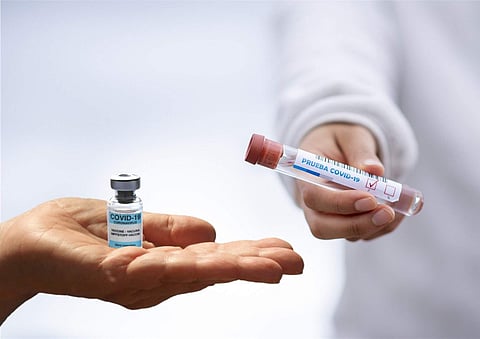

Nearly 95 per cent of people with cancer developed a good immune response to the COVID-19 mRNA vaccines three to four weeks after receiving their second dose, finds a new study co-authored by Indian-origin researchers.
The study, published in the journal Cancer Cell, indicated that among the 131 patients studied, 94 per cent developed antibodies to the Coronavirus. Seven high-risk patients did not.
"We could not find any antibodies against the virus in those patients," said researcher Dimpy P. Shah from the University Of Texas Health Science Center at San Antonio.
Among the high-risk groups, patients receiving a therapy called Rituximab within six months of vaccination developed no antibodies. Rituximab is a monoclonal antibody used in the treatment of hematological cancers and autoimmune diseases.
Patients on chemotherapy that is toxic to cells developed antibody response, but it was muted compared to the general population.
"How that relates to protection against COVID-19, we don't know yet," Dimpy Shah said. The Delta variant and other mutants of the COVID-19 virus were not examined in the study. The team also did not analyze the response of infection-fighting T cells and B cells in patients with cancer.
"Patients with hematological malignancies, such as myeloma and Hodgkin lymphoma, were less likely to respond to vaccination than those with solid tumours," said Pankil K Shah from the Geneva University Hospital. The median age of patients in the study was 63. Most of the patients (106) had solid cancers as opposed to hematological malignancies (25).
